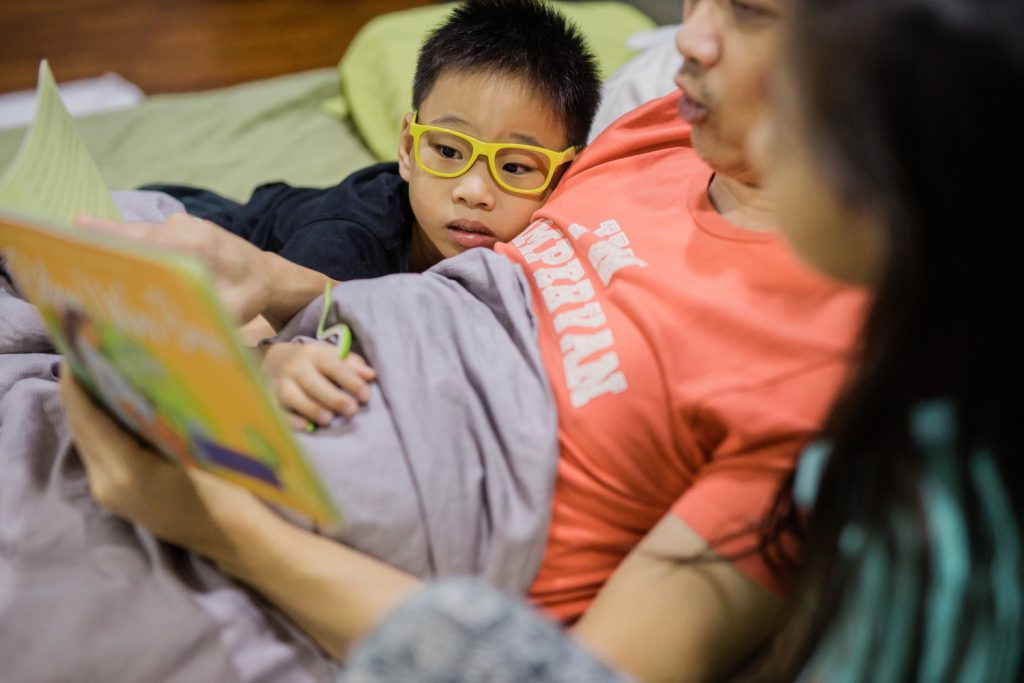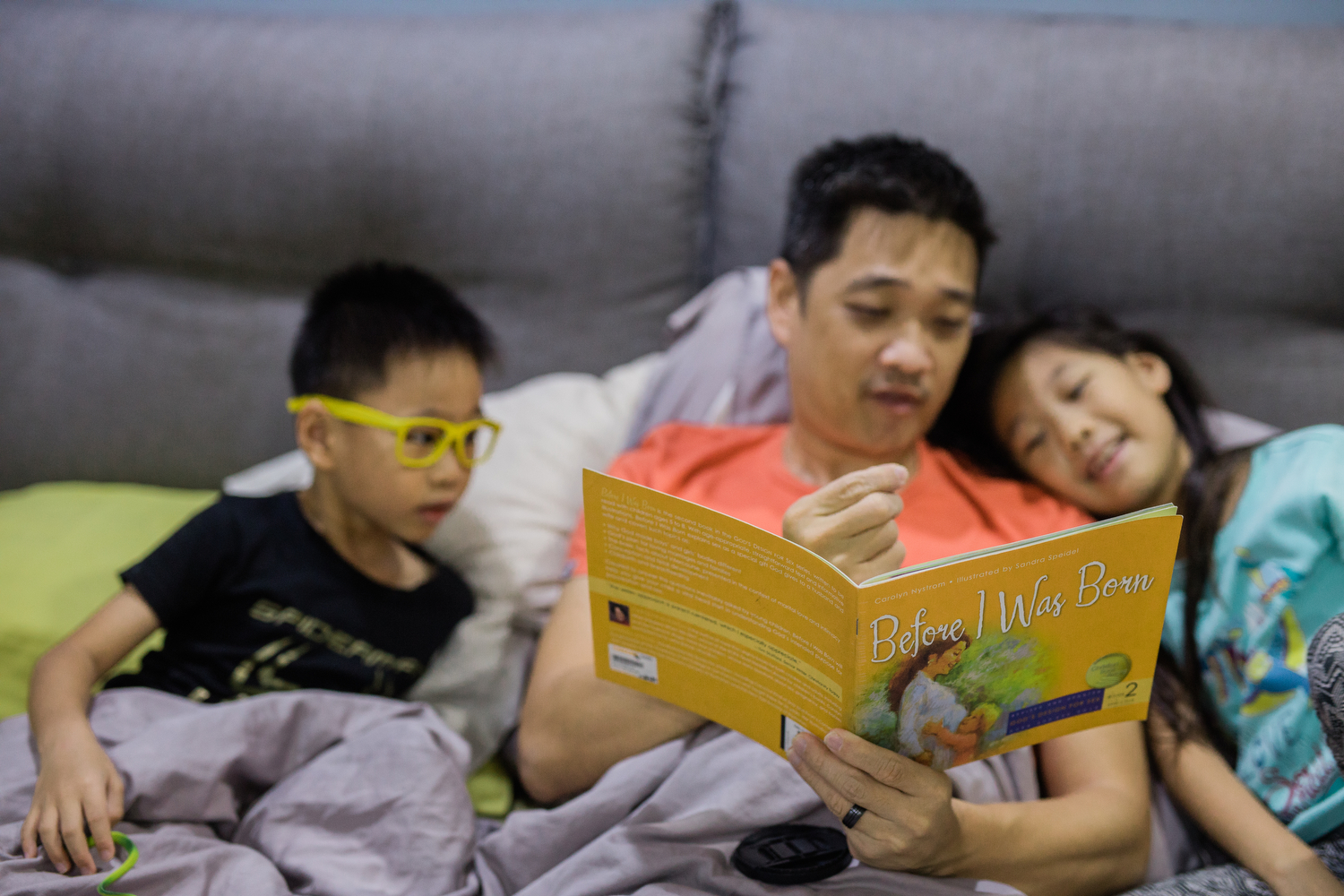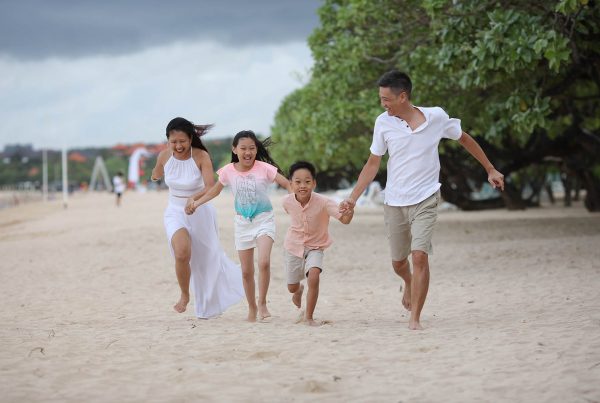So we finally had that conversation with our young kids about sex. It wasn’t a conversation that just happened in a day. I know many parents dread broaching this topic with their kids. We try to delay this conversation, thinking that, one day, we’ll be ready. But that ‘feeling’ of readiness seldom arrives by itself if we don’t do anything about it.
I’d much rather my kids learn about sex through me than finding out random information through friends or the internet (which is how most of us got our sex education growing up, other than the official science classes in school). In a survey done by the Malaysia Communications and Multimedia Commission (2018), it was found that 92% of children aged 5 – 17 years use the internet. In a separate study by UNICEF, titled “Our Lives Online” (2020), it states that out of the 301 children in East Asia they spoke with, 2 out of 5 have had bad experiences online that they would not want to talk to anyone about. This includes receiving sexual images and messages on social media. So, how can we protect our children from accidentally stumbling upon information that is harmful to them?
It’s not as if parents do not want to talk about this much needed topic, it’s just that most of us do not know how. In fact, in one sex education webinar I attended, a parent of a 14 year old asked the panel speakers, “Can I talk to my child about sex through WhatsApp?”
The struggle is real.

I believe we have to start from when they are young. Here’s what we did with our kids to get to where we are today.
- We taught them the right words for their body parts
Even while they were toddlers and learning to speak, we used words like vagina and penis instead of pet names for their private parts. This removes the shame associated with such words. In the event that someone has abused them, it is very clear to anyone listening what they are referring to. If your child is reporting about someone touching his ‘banana’, the meaning can easily be lost. - We spoke about privacy and protection
When our kids were in preschool, we taught them that certain areas of their body are private and should not be touched by other people. We explained that their body is theirs and they have a right to say no if anyone makes them do something that feels uncomfortable, even if if includes kissing requests from our friends or certain family members. - From an early age, they learnt about boundaries
After our kids turned 5, we decided not to shower together with them or be naked in front of them. We told them that we need our privacy, and so they know not to barge into the room when we are changing. When the kids turned 6, we encouraged them to shower on their own, even if it is a little challenging. I don’t know if parents of other little cheeky boys find it challenging, but I have had to tell my son off countless times for strutting around naked and laughing about it. It’s a process, but he’s slowly learning! - We explained where babies come from
This was easier to explain first, because we just had to tell them that a woman gets pregnant, babies grow in the womb, and are finally birthed after 9 months. How she gets pregnant, is a story for a another day. - We taught them about the value of marriage and relationships
I love having conversations like these with my kids. We talk very openly about love, and how they should be very thoughtful about the kind of the person they choose to marry in the future. As much as we can, we model what a loving relationship looks like, so hopefully, they will learn to know how to make wise choices in the future. As they get older, we hope to teach them the difference between love and lust, patience, respect and self-control. - We used books to help explain the process
There are a lot of resources that you can find on sexual education for kids. But the one we chose is called “God’s design for sex” series, by Carolyn Nystrom. It was simple to read and easy to understand, especially for kids aged 5-9 years of age.
As I mentioned, this is an ongoing journey, and will not stop here at 1 or 2 conversations. Our children will have different curiosities growing up, and we’ll need to be ready to have this conversation. But we need to build a strong relationship with our kids first so that they will feel safe to come to us and discuss any topic that is on their heart. Rules without relationship leads to rebellion. But boundaries explained with love leads to safety.
I hope this helps you. Would you like to know what my kids said after they learnt about sexual intercourse?
My daughter exclaimed with a shocked voice, “You mean, you had to do it twice?!”, looking at Kyle.





I want to learn more – managing anger and how to set boundaries for gaming.
Thanks Jolene for sharing! Yes we did share about managing anger in a separate post before but we’ll get into more detail in the future. Also, good point about setting boundaries, we can create a topic around that too!